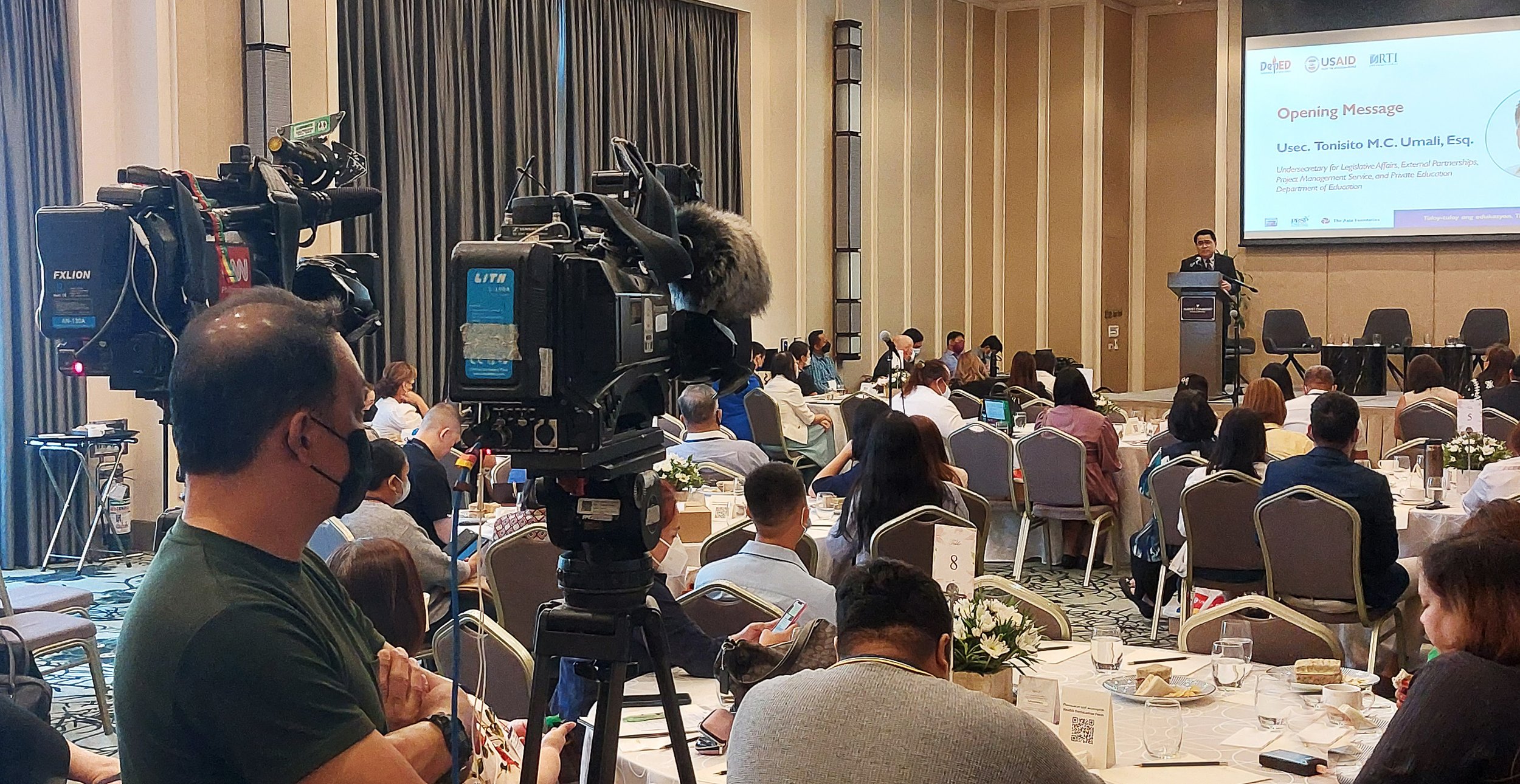Blooming in Bacolod City
/“Bloom is exactly what I needed for teachers like us because we have developed so many materials. But the thing is that we don’t get to publish them because publishing our books would need financial support we don’t have. With Bloom now on our laptops, we can share them to everyone. … This has also developed friendship. Deeper friendship. Connections. We, the writers, will be connected after this. …This seminar is emotional. This seminar is a journey. … We are leaving a legacy... The book is just a material. But the process we have been through is really amazing.”
Maria Dulce Corazon
Kindergarten Teacher
Master Teacher 1
In June, SIL LEAD Executive Director Christof Weber had the opportunity to attend the last few days of a materials development workshop in Bacolod City, in the Philippines.
The workshop focused on developing decodable readers in the Sinugbuanong Binisaya language, for Grade 1 students in Negros Occidental as part of the USAID-funded Philippines Advancing Basic Education (ABC+) project led by RTI International.
Chris was only able to attend the last three days of the workshop, but it was a particularly exciting time to be there, as he was able to witness books being completed by the authors, illustrators, and editors, and then to observe as the books were reviewed and approved by the Department of Education (DepEd) Language Resource Evaluators (LREs), editors and other regional officials.
These books weren’t written in just three days, though.
The work actually started back in April, when SIL LEAD consultant Cecille Osorio-Van Zante was given permission to work with DepEd stakeholders to evaluate the current primer sequence (the order in which letters are introduced as children are taught to read).
By using PrimerPrep software, Cecille and our team determined that the existing sequence wasn’t as productive as it could be. Working with key personnel from various DepEd Divisions who speak the Sinugbuanong Binisaya language, Cecille helped to craft a sequence that would permit more words to be written (and read), as students were introduced to each new letter. Once this work was completed, the DepEd from Negros Occidental continued to work on developing a new primer that would follow this improved sequence.
The first portion of the Decodable Materials Development Workshop was held online, from April 25 to May 13.
Participants received training on writing and illustrating informational text and stories for children, how to write decodable text, and how to take Social and Emotional Learning (SEL) and Gender Equality and Social Inclusion (GESI) concerns into account. The authors developed their storylines and drafted stories, and DepEd’s K to 3 Curriculum and Social Content Guidelines were included in the training.
Then, from May 16-20, an in-person workshop was held.
The participants were introduced to Bloom and taught how to use Bloom’s Decodable Reader Tool to ensure that all text was decodable.
Once the text was ready to be illustrated, the workshop continued for another three weeks online as the stories were further refined and field tested: first with line drawings, and then again once the color illustrations had been added.
During the final in-person workshop (the one that Chris attended), authors revised storylines and corrected errors, as illustrators made changes and improvements to their illustrations based on the feedback they received from the editors and LREs. Drafts of books were projected onto large screens so that each group of authors could easily view them as they worked together to fine tune each book, and illustrators interacted frequently with the authors.
Although everyone was working hard to meet the end-of-week deadline, the atmosphere was festive – especially during the lunch and merienda (snack) breaks.
It was rewarding to see more experienced authors helping newer authors, and to watch senior illustrators helping those who had only recently learned to use illustration software. Capacity was built, not just by our consultants, but by the interactions of more and less experienced authors and illustrators.
But what Chris found most rewarding was how highly the workshop participants regarded the SIL LEAD consultant team. Many commented on how capable, patient, and friendly our consultants were.
It was a time of great celebration.
As each title was completed, participants would cheer and applaud. One group even played the song “Pomp and Circumstance” to celebrate their completions. Likewise, there was applause after each successful review and approval, and again when the authors and illustrators were informed that their books had been approved. In total, 35 decodable Sinugbuanong Binisaya books were completed, reviewed, and approved for publication and use in schools.
These books will soon be printed and distributed to Grade 1 classrooms, and will be added to the digital Bloom Library (bloomlibrary.org).
Pictured from left to right: Manuel “Manny” Tamayao (SIL Philippines), Francisco “Kiko” Hacildo, Maria Cecilia “Cecille” Osorio-Van Zante (SIL Philippines), Jean Behis, Nova De la Peña. Not pictured: Bamie Bucog, Anthony "Anton" Golloso
We at SIL LEAD are so pleased to be a small part of the ABC+ project, and are grateful to our RTI ABC+ colleagues and the 17 authors, 19 illustrators, 3 editors, and 9 LREs who helped us develop these decodable readers.
Maraming salamat po! (Tagalog/Filipino)
Daghang salamat! (Sinugbuanong Binisaya)






